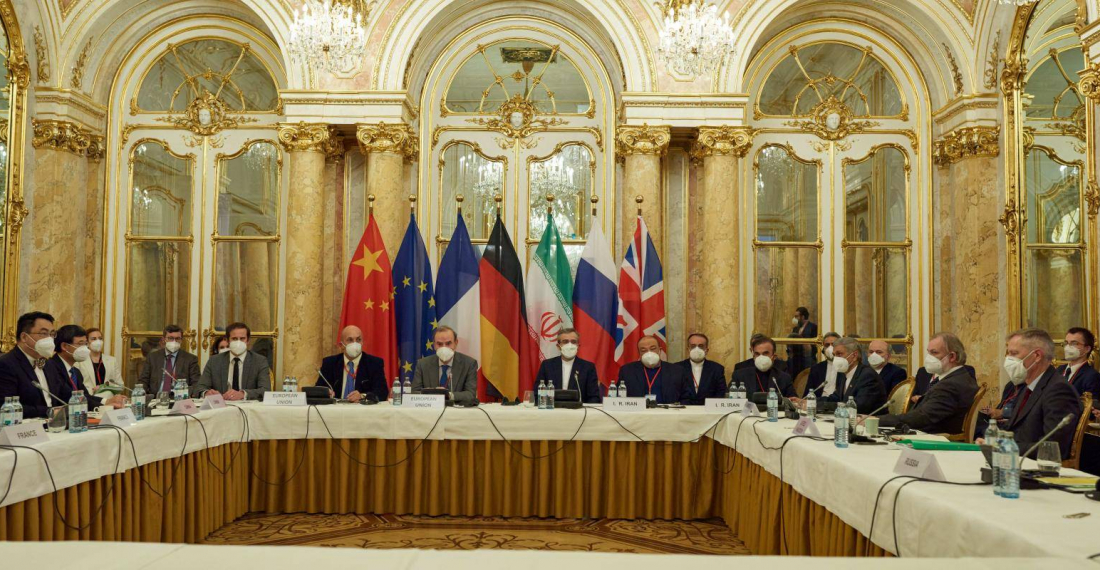The election of Joe Biden as president in November 2020 raised hopes among the international community that the United States will restore the nuclear deal signed in 2015. Many architects of the deal returned to positions in the White House and State Department. The other signatories of the deal, including the three EU states, China and Russia, were ready to contribute to the restoration of the deal. Conventional wisdom said that Iran should be interested in restoring the deal, too. The economic downturn triggered by the re-imposition of the US sanctions created significant challenges for the Iranian government. Thus, as indirect talks started in Spring 2021, it seemed that all ingredients were there to reach an agreement even before the end of President Rouhani's second and final term in June 2021.
However, the restoration of the agreement proved to be much more difficult. As a response to the US withdrawal from the deal, Iran started to increase the level of uranium enrichment, while the US decision to include the Islamic Revolutionary Guard Corps (IRGC) on its “Foreign Terrorist Organizations” list in 2019 complicated the matters further. After the June 2021 Iranian Presidential elections, which ended with the victory of Ebrahim Raisi, Iranians asked for a break in the negotiations to allow the new administration to get a better understanding of the developments. Negotiations resumed in late November 2021 and seemed to reach a final stage in March 2022 when the sides almost agreed on the agreement's text. Even the war in Ukraine started on February 24, 2022, and Russia’s unexpected demand for written guarantees that its economic trade with Iran would be exempted from US sanctions imposed on Russia since its start of hostilities did not derail the negotiations.
Alas, since March 2022, negotiations entered into a stalemate, due allegedly to the Iranian demands to remove IRGC from the “Foreign Terrorist Organizations” list. Another issue of contention was Iran’s demand to provide guarantees that future American administrations will not withdraw from the agreement, repeating the President Trump move taken in May 2018. Meanwhile, the Republicans in the US House of Representatives and Senate pressured the Biden administration on Iran’s issue. On March 14, 2022, forty-nine Republican Senators signed a statement claiming they would not support the revived Joint Comprehensive Plan of Action with Iran.
Israel also was taking steps to prevent the resumption of the nuclear deal. In late February 2022, Israeli Prime Minister Naftali Bennett stated that the new nuclear accord between Iran and P5+1 states would be weaker than the original 2015 agreement. Israel ratcheted pressure against the US administration to keep the IRGC on the terrorist list. In late May 2022, President Biden finalized his decision to keep Iran’s Islamic Revolutionary Guard Corps on a terrorist backlist and conveyed his decision during a May 24 phone call with Israeli Prime Minister Naftali Bennett. On May 22, 2022, gunmen riding on motorcycles opened fire on a senior officer of IRGC outside his home, killing him in his car in the capital, Tehran. Iran blamed the assassination on “elements linked to the global arrogance” – its term for the United States and its allies, including Israel.
Tensions raised further as on June 8, 2022, International Atomic Energy Agency adopted a resolution criticizing the Islamic republic for failing to cooperate. The resolution – the first to criticize Iran since June 2020 – was approved by 30 members of the IAEA board of governors, with only Russia and China voting against it. House before the vote, Iran said it disconnected some International Atomic Energy Agency cameras monitoring its nuclear sites.
The EU made a last-minute effort to push forward the negotiations, as Josep Borrell, the EU High Representative for Foreign Affairs and Security Policy, met Hossein Amir-abdollahian, Minister for Foreign Affairs of Iran, on June 25, 2022, in Tehran. Iran and the United States launched another round of indirect talks in Qatar, mediated by the EU. However, the talks, which were held on June 29-30, did not bring any results. On July 1, 2022, a senior US official told Reuters on the condition of anonymity that chances of reviving the 2015 Iran nuclear deal were worse off after talks in Qatar.
The drama surrounding the potential restoration of Iran’s nuclear deal flows parallel with evolving Russia – West confrontation. As the West, led by the US, seeks to isolate Russia internationally, Kremlin attempts to deepen its relations with non-Western powers. Russia participated in the BRICS summit (Brazil, Russia, India, China, South Africa) held on June 23, 2022, followed by BRICS + summit on June 24 with the participation of leaders of Algeria, Argentina, Cambodia, Egypt, Ethiopia, Fiji, Indonesia, Iran, Kazakhstan, Malaysia, Senegal, Thailand, and Uzbekistan. On June 27, 2022, Iran and Argentina applied to join BRICS.
As Iran seeks to deepen its relations with the non-Western world as a part of the “Look to the East” foreign policy, Tehran hosted Russian foreign minister Lavrov in late June 2022. During negotiations with Iran’s President and Foreign Minister, Lavrov stated that for all countries experiencing the negative influence of the selfish line taken by the United States and its satellites, there is a need to reconfigure economic relations. In this context, the prospects for restoring Iran’s nuclear deal are becoming less and less tangible while Iran seeks to counter the US through activating its involvement in non-Western institutions.
source: Benyamin Poghosyan is the founder and Chairman of the Centre for Political and Economic Strategic Studies in Yerevan.
photo: Talks in Vienna on restoring the Iran nuclear deal have been going on for months. (archive picture)
The views expressed in opinion pieces and commentaries do not necessarily reflect the position of commonspace.eu or its partners






